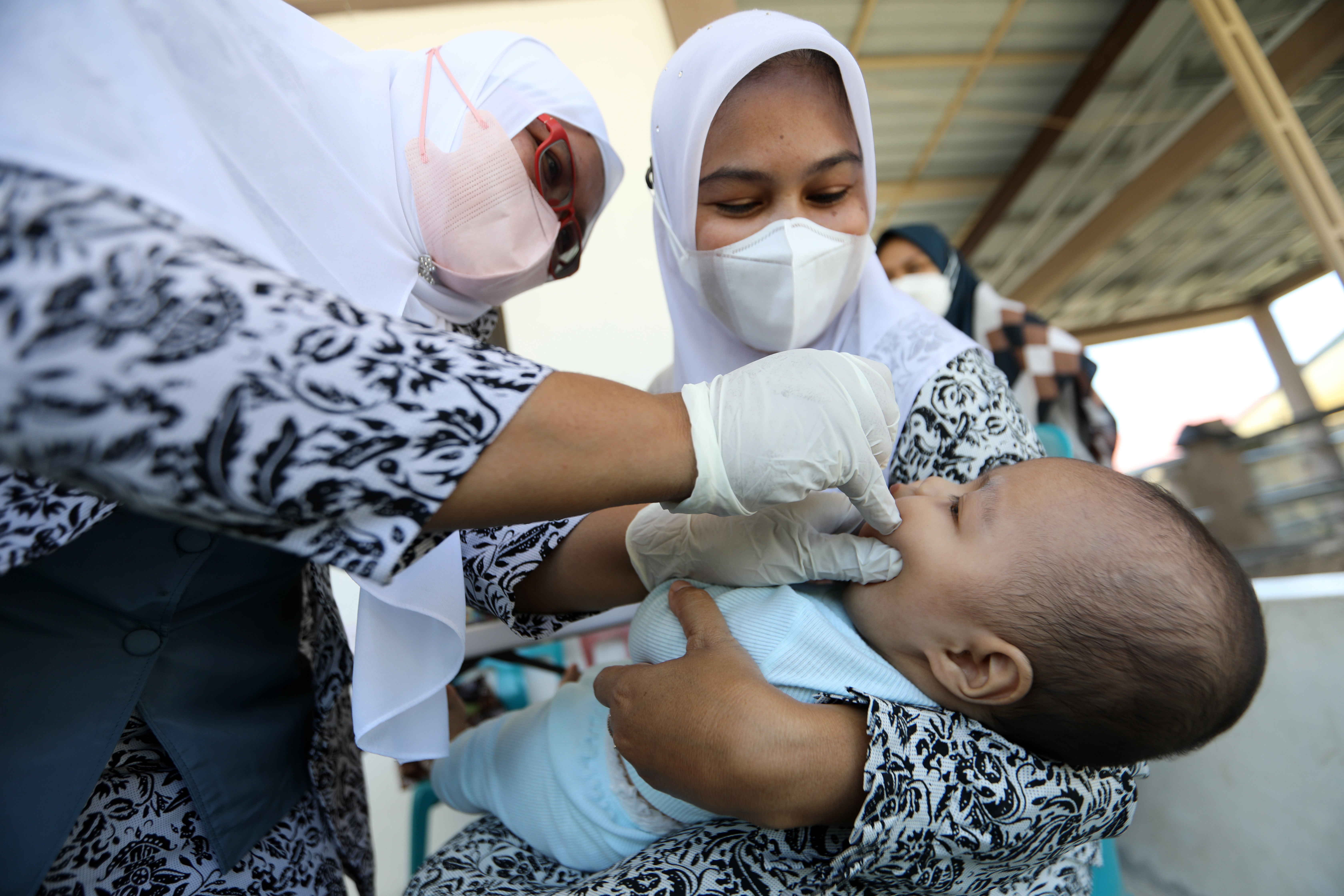Three Indonesian children die from mysterious liver disease, taking global toll from acute hepatitis to four
The cause of acute hepatitis ‘remains unknown,’ says WHO

Your support helps us to tell the story
From reproductive rights to climate change to Big Tech, The Independent is on the ground when the story is developing. Whether it's investigating the financials of Elon Musk's pro-Trump PAC or producing our latest documentary, 'The A Word', which shines a light on the American women fighting for reproductive rights, we know how important it is to parse out the facts from the messaging.
At such a critical moment in US history, we need reporters on the ground. Your donation allows us to keep sending journalists to speak to both sides of the story.
The Independent is trusted by Americans across the entire political spectrum. And unlike many other quality news outlets, we choose not to lock Americans out of our reporting and analysis with paywalls. We believe quality journalism should be available to everyone, paid for by those who can afford it.
Your support makes all the difference.Three children died from acute hepatitis in Indonesia last month, taking the global reported child deaths from the mysterious liver disease to at least four.
The south Asian country’s health ministry said the children had died after being hospitalised with some of the symptoms in capital Jakarta.
The children were admitted with fever, vomiting, heavy diarrhoea, seizures, jaundice and loss of consciousness, the ministry said in a statement on Monday, urging parents to seek medical help for their children if they find these symptoms in them.
The children were aged two, eight and 11.
At least 170 cases of a severe type of acute hepatitis have been identified in children between 1 month and 16 years across 12 countries.
The World Health Organisation (WHO) has maintained that the origin of the deadly “remains unknown”.
“At the moment, we suspect the cases as acute hepatitis, but we need to confirm that they are not due to known hepatitis viruses A, B, C, D, and Rb,” Indonesian health ministry spokesperson Siti Nadia Tarmizi was quoted by news agency AFP as saying.
The ministry added they were investigating the cause of hepatitis by running “a full panel of virus tests”.
Last week, Singapore confirmed a 10-month-old baby died after suffering from acute hepatitis. The child had Covid in December, but there is no current evidence linking acute hepatitis to the disease.
According to the WHO, a dozen other children across the globe had to undergo liver transplants after contracting the disease.
The UK was the first to notify the WHO about an outbreak of severe acute hepatitis in children, with 34 new confirmed cases since 25 April.
Hepatitis is an inflammatory condition of the liver caused mostly by viral infections, but can be triggered by medications and toxins.
Philippa Easterbrook, a scientist with WHO who is monitoring hepatitis, said investigations have shown none of the children had the common viral causes of hepatitis A, B, C or E.
None of the common bacteria or bugs that cause stomach upsets and gastroenteritis in children were detected either, the epidemiologist added.
“What is particularly unusual is that the majority of these children were previously healthy,” Dr Easterbrook said during a question and answer session in April.
She added: “The questionnaires have not identified any common exposure, be it to a toxin or a particular food and no strong travel history. And importantly, very few of the children have received Covid-19 vaccinations. So, there does not appear to be a link with Covid-19 vaccine,” she said.
Reports have suggested that the rise in sudden cases in children may be linked to a common cold virus known as the adenovirus.
“The suggestions are there is a clear significant increase above that background rate in several of the countries that have been able to report this data with some confidence. But that is what we are trying to establish in the various countries now that we are working with to investigate those cases and establish whether this is the case,” Dr Easterbrook added.
Join our commenting forum
Join thought-provoking conversations, follow other Independent readers and see their replies
Comments